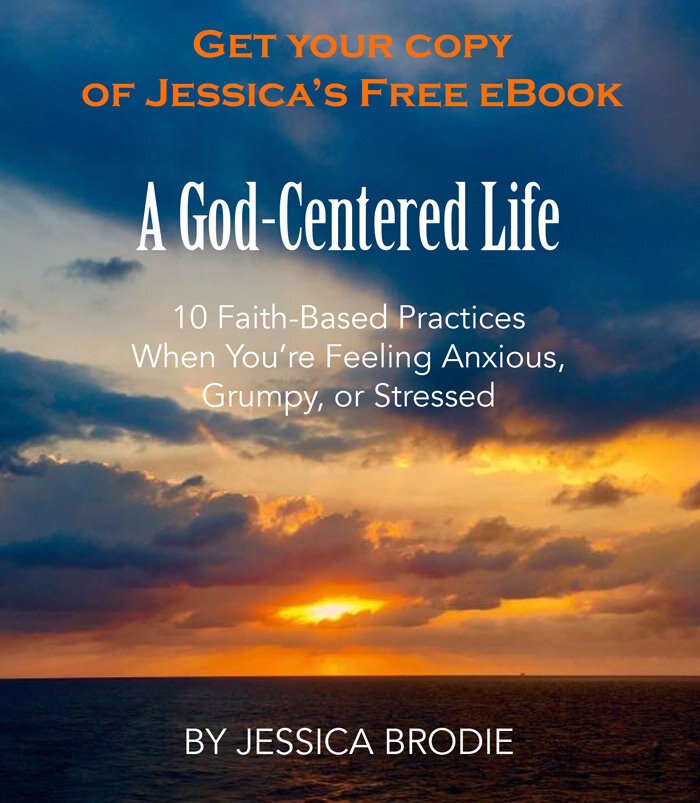Running Well in Your Mental Health Marathon
By Jessica Brodie
Mental and emotional health can be a marathon—and it certainly is in my home. One of our daughters has struggled for years with sometimes-debilitating anxiety and other issues, including depression. It’s a huge challenge both for her and for me. I don’t have anxiety, so I’ve had to learn a great deal of compassion, patience, and flexibility over the years, as well as much about what it means as a Christian to love and care for someone with mental illness.
Mental illness is complicated, because it’s not just in someone’s head. It’s a complexity of physical, emotional, spiritual, and other obstacles all swirling and dancing together. Sometimes it is predictable, and you can tackle problems with ease. Other times, it can quickly spiral out of control.
In 1 Corinthians 9, the apostle Paul talks about our spiritual life as much like a race. As he writes to the early Christians in Corinth:
“Do you not know that in a race all the runners run, but only one gets the prize? Run in such a way as to get the prize. Everyone who competes in the games goes into strict training. They do it to get a crown that will not last, but we do it to get a crown that will last forever. Therefore I do not run like someone running aimlessly; I do not fight like a boxer beating the air. No, I strike a blow to my body and make it my slave so that after I have preached to others, I myself will not be disqualified for the prize.”—1 Corinthians 9:24-27 NIV
I’m not a great runner. Between asthma and some joint issues, I’ve tried, but it’s not for me, though I can claim a successful completion of two 5Ks in the last decade. Yet those who run consistently and compete in marathons understand how important it is to train, to pace yourself, and to keep the finish line always at the front of one’s mind.
That’s what Paul is saying in the verse above: When it comes to our life as Christians, we must do the same. We must train, pace ourselves, and keep the finish line in mind.
Well, take it from me. As the Christian mother of a Christian daughter trying her hardest to conquer and live with mental illness, Paul’s advice about a race goes a long way.
Mental health is like a marathon, but it’s one we’re determined to complete, to run well, to finish knowing we run every step with the Lord Jesus at our side.
Sometimes it’s a lonely race. Maybe we don’t always “feel” Jesus next to us (though He is always there). Maybe we don’t have a lot of other runners nearby, or supporters cheering us on. Maybe we’re even dealing with hecklers—people who minimize or dismiss our pain and our struggles as something just to “get over” or “pray away.”
By training with purpose and maintaining a focus on that great “finish line” all Christians will one day experience in God’s Holy Kingdom, we persevere. We push through. We persist.
God has gifted us with a number of phenomenal resources over the years that have been a huge help, from counselors to medication. One of the tools is a list of coping skills.
Now, in the midst of a panic attack, sometimes it’s hard to remember those coping skills—just like when a runner gets a cramp or that last uphill stretch looms hard and heavy, it might be hard to remember your training. But when we stop and take the time to think of the big picture, that this panic attack or moment of intense anxiety is here now but not always, and we remember we can draw from a host of skills to get us through, our race is far easier.
For example, journaling or deep-breathing exercises might be the last thing my daughter wants to do when she’s having a panic attack. (Just like stretching might feel like the last thing a runner wants to do when she experiences a leg cramp mid-run.) But when she forces herself to remember those skills and actually do them, it helps.
May is mental health awareness month, and so I offer a few coping skills you or anyone can use to cope with anxiety or other out-of-control emotions:
Basic self-care (brush teeth, wash face)
Pet an animal
Distract yourself
Journal
Visualize a safe place
Yoga or stretching
Make a gratitude list
Read the Bible
Do a puzzle
Pray
Spend time with another person
Repeat positive affirmations
Intentionally tense and relax your muscles
Pay attention to your five senses
Engage in calm breathing
Decatastrophize (list best- and worst-case scenarios, as well as those most likely to occur)
Process your thoughts with others
Set boundaries
Use “I statements” to get your needs met
Volunteer or do a random act of kindness
Do a fun, energizing activity
Go for a walk
Drink something very cold or hold an ice cube
Remember: This race does have a finish line. And there are things we can do to make it easier along the way.
Do you have any other coping suggestions? I’d love to hear them—comment below, or email me privately. God bless you, my friends.


